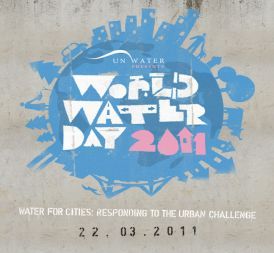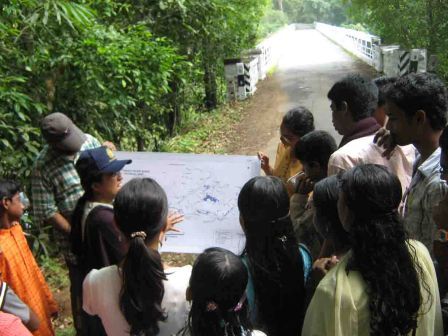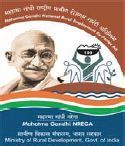/regions/political
Political
Demonstration of rural technologies developed by NEERI to stakeholders of the Vidharbha region - National Environmental Engineering Research Institute, 8th March, Nagpur
Posted on 04 Mar, 2011 05:00 PMOrganizer: National Environmental Engineering Research Institute (NEERI)
Venue: National Environmental Engineering Research Institute (NEERI), Nagpur
Report of the National Science Mela 2011 organised by Arul Anandar College of Karumathur, Tamil Nadu
Posted on 04 Mar, 2011 02:55 PMFrom 25th to 27th of Feb.- 2011, the Arul Anandar College of Karumathur conducted National Science Mela 2011: Youth for Science and Science for prosperity on Eco - water, Sanitation and Hygiene with the support of National Council for Science & Technology Communication, DST, Govt. of India, New Delhi, Tamil Nadu State Council for Science and Technology and Tamil Nadu Science City Chennai.
iGREEN was invited for this Science Mela and put a stall and explained about the carbon effect to the participants. Mr. Francis Xavier - Convener of iGREEN explained the Science of 350 campaign and How to reduce the carbon effect from the atmosphere with the support of our iGREEN Scientist Mr. Abdul Azis and Mr. John Bosco, Assistant Prof. of Rural Development Science in Arul Anandar College to the participants.
Emerging policies, creating new commons - A policy forum
Posted on 04 Mar, 2011 02:54 PMThe panel discussion was held to further the idea of commons by extending the idea of autonomy in some of the discussions on commons to the Indian idea of Swaraj or Self-Rule.
Discussions in the panel drew the existing ideas of resource sharing, establishing institutions for governance but extend this to a broader discussion on knowledge and democracy. The panel draws from a recent examination of Gandhi’s Hind Swaraj from a knowledge perspective, an attempt by a network of knowledge commons - the Knowledge In Civil Society or KICS – to posit an Indian science and technology manifesto for 21st-century India and the world. Knowledge Swaraj suggests a new social contract of science in India, based on the principles of plurality, sustainability and justice and a closer look at expertise and knowledge in India. The panel began with a view from civil society on knowledge by M V Sastri looking at Gandhi’s ideas of Hind Swaraj and oceanic circles and the need for the commons debates to relook at ideas from Hind Swaraj from the viewpoint of the present day discourses of human rights also. This was followed by papers that suggest how these ideas can be explored in practice.
Celebration of World Water Day 2011 , The Institute of Engineers, 22nd March, 2011, Shivajinagar, Pune
Posted on 04 Mar, 2011 02:49 PM
Organizer: The Institution of Engineers
Venue: Pune Local Center, Shivajinagar, JM Road, Pune
Present status of interlinking of rivers project - Press Information Bureau release
Posted on 04 Mar, 2011 02:09 PMThe Government has said that the National Water Development Agency (NWDA) under the Ministry of Water Resources (MoWR) has identified 30 inter-state River links (16 under Peninsular Component & 14 under Himalayan Component) for preparation of Feasibility Reports (FRs). Out of these, FRs of 14 links under Peninsular Component and 2 links (Indian Portion) under Himalayan Component have been completed. Giving this information in written reply to a question in the Lok Sabha, present status of interlinking of rivers in the country, Shri Vincent H. Pala, Minister of State for Water Resources, said that the Five inter-state River links under Peninsular Component namely (i) Ken-Betwa, (ii) Parbati-Kalisindh-Chambal, (iii) Damanganga-Pinjal, (iv) Par-Tapi-Narmada & (v) Godavari (Polavaram)-Krishna (Vijayawada) were identified as priority links for building consensus among the concerned states for taking up their Detailed Project Reports (DPRs).
River schools can make the future look bright - Parineeta Dandekar
Posted on 04 Mar, 2011 01:25 PM Above - Children studying a map of the Chalakudy Basin. Photo - RRC.
Above - Children studying a map of the Chalakudy Basin. Photo - RRC.
Seeds of sustainability and sensitivity when sown at a young age, blossom into responsible individuals. And you need to be in touch with the land to sow those seeds. The Central and State Boards of Education in India have made Environmental Science a compulsory subject for schools and junior colleges (for all subjects). But Environmental Sciences is not to be studied in the classroom. In order to understand the erosion and deposition processes of a river, students need to visit a river bend in their city and in order to instil a lifelong aversion to plastic bags, a landfill and dumping grounds need to be seen.
"Civil society groups to do NREGA audit again"
Posted on 04 Mar, 2011 11:56 AM

Main highlights in this update:
Landmark initiative of Karnataka High Court stops the destruction and degeneration of lakes of Bangalore - ESG press release
Posted on 04 Mar, 2011 09:02 AMIn a landmark ruling today, the Hon’ble High Court of Karnataka accepted the report of a committee it constituted to examine the ground realities and prepare an action plan for the preservation of lakes in the city of Bangalore. This report was sought by an interim direction of Chief Justice Mr. J. S. Khehar and Justice A. S.
Swarnim seminar on "Water for Inclusive Growth", Sardar Sarovar Narmada Nigam Limited, 22nd March 2011, Gandhinagar, Gujarat
Posted on 03 Mar, 2011 12:31 PM
Organizer: Sardar Sarovar Narmada Nigam Ltd.
Venue: Pandit Deendayal Petroleum University (PDPU) Auditorium, Gandhinagar, Gujarat
Topics:
- Water for Inclusive Growth